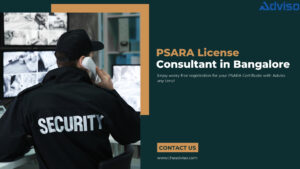Full-fledged money changers (FFMC) are entities that are permitted to purchase foreign currency from Indian residents and non-residents and to sell foreign currency to foreign visitors solely for the purpose of personal or business travel. In accordance with Section 10 of the Foreign Exchange Management Act of 1999, only authorized money changers who hold the FFMC License are permitted to engage in currency exchange in India and provide the necessary foreign exchange services. Several businesses and hotels have been granted FFMC license to deal in international Currency Notes, Coins, and Traveler’s Cheques in accordance with RBI’s guidelines. This was done in an effort to alleviate the difficulties faced by international visitors and tourists.
To operate as an authorised money changer in India, one must also obtain a valid FFMC License, which is issued by the RBI. The entity that is identified to be providing currency exchange services without a valid license may face severe legal consequences. The RBI[1] publishes its Master Circular, known as the MoI (Memorandum of Instruction), on money-changing operations containing the FFMC regulations annually.
Different Kinds of FFMC License
There are three kinds of FFMC License in India:
- Authorised Dealer Category I Banks
- Authorised Dealers of Category II Banks (ADs Category–II)
- Full Fledged Money Changers (FFMCs)
Activities Allowed under FFMC License
- FFMCs may enter into Franchise Agreements to engage in Restricted Money Changing or the conversion of foreign currencies or travelers’ checks into Indian Rupees.
- FFMCs/Franchisees are permitted to purchase foreign currency in the form of notes, coins, and traveller’s checks from both residents and non-residents.
- Foreign tourists and visitors may purchase Indian Rupees from FFMCs using their international credit cards or debit cards, and the FFMCs will promptly take the necessary steps to get repaid via standard banking channels.
- FFMCs are permitted to sell foreign currency for the purposes of personal visits, visits for business purposes, or Forex Pre-Paid vouchers.
Regulatory Framework for FFMC License
The RBI is the governing entity for FFMCs and has issued the following directives to regulate the operation and licencing of FFMCs:
- Issuance of new FFMC licenses
- Renewal of current FFMC permits
- Guidelines for Authorised Persons
- Know Your Customer (KYC) and Anti-Money Laundering (AML) protocols
- Issuance of license to branches
- Approval for employment of agents or franchisees
- Protocol for Combating Financing to Terrorists (CFT)
Conditions required for FFMC License Application in India
- The Full-Fledged Money Changer License applicant must be registered under the Companies Act, 2013.
- The company must have a minimum Net Owned Fund (NOF) of INR 25 lakhs to apply for a single branch and INR 50 lakhs for multiple branches.
- The object clause of the Memorandum of Association must include the activity of currency exchange.
- Neither the Department of Revenue Intelligence nor the Department of Enforcement should have any open civil or criminal cases against the company.
- Within six months of the Forex License being issued, the company must commence operating under its FFMC License and report its progress to the RBI.
Documents Required for Obtaining an FFMC License
- A copy of the certificate of incorporation.
- A provision in the memorandum and articles of association or a suitable amendment authorising the operation of a money-changing business.
- A copy of the most recent audited financial statements and a statement from the statutory auditors attesting to the amount of net owned funds as of the date of application.
- Copies of the company’s audited profit and loss statements and balance sheets for the past three years.
- A sealed copy of the applicant’s banker’s report.
- Information on related or sibling enterprises active in the financial sector, including NBFCs.
- A copy of the board’s resolution to engage in currency exchange.
Fit and Proper Criteria for Directors of Full-Fledged Money Changers
The directors must fulfil the following fit and proper criteria:
- The director must be of age up to 70 years.
- They must not be a Member of the Legislative Assembly.
- They must not have a history of fraudulent practices.
- They must not be a Member of Parliament.
- They must not have any previous criminal record.
- They must not have any sanctions or permissions from regulatory bodies.
Registration Procedure for FFMC License
- Application Filing: A comprehensive application must be filed with the Regional Office of RBI in the format prescribed in Annexure II.
- Submission of Documents: The application is filed along with the relevant documents of the money exchanger.
- Evaluation by the Empowered Committee: The Empowered Committee of the RBI assesses the application, documents, and the fit and proper criteria for the directors before taking any approval or rejection decisions.
- Empowered Committee Clearance: Once all requirements for the applicant/Directors of the FFMCs are met to RBI’s satisfaction, the Empowered Committee gives its clearance, and the Full-Fledged Money Changer License is issued.
Post-Registration Requirements for FFMC License Holders
Once the applicant receives their FFMC license, they must comply with the following post-licensing requirements:
- Before the launch of its business, a copy of the Shops & Establishment Act Registration Certificate or other documentary evidence, such as a rent receipt or lease agreement, must be submitted to the relevant RBI Regional Office.
- The activities of new FFMCs must adhere to the RBI’s guidelines issued periodically.
- FFMCs must display a copy of the RBI-issued money-exchange license at each location where they conduct business.
- FFMCs must implement a system for concurrent audits of every transaction they initiate.
- All FFMCs are required to submit their annual audited balance sheet to the relevant RBI Regional Office.
- All FFMC license holders must maintain a daily summary and Balance Book of Traveler’s Cheques, Form FLM 2, and Foreign Currency Notes/Coins, Form FLM 1.
- The FFMC must complete Form FLM 3 to record government purchases of foreign or international currencies.
- It must also complete Form FLM 4 to report the acquisition of foreign currency notes or coins from licensed dealers and money changers.
- It must maintain a register of Public Sales of Foreign Currency and Foreign Currency Traveller’s Cheques on Form FLM 5.
- The FFMC license holder must also report its Foreign Currency Sales to Authorised Dealers, Full-Service Money Changers, and Foreign Banks on Form FLM 6.
- It must also maintain a register on Form FLM 7 for all traveller’s checks presented to authorised merchants, money changers, or exporters.
FFMC License Cancellation
A registered company’s FFMC license may be revoked at any time by the Reserve Bank of India if the Bank determines:
- The license revocation of FFMC is in the public interest.
- The FFMC license holder has violated any rule, regulation, notice, or direction.
- The FFMC license violates one or more provisions of the FEMA Act.
FFMC License Renewal
An FFMC license holder must submit a renewal application two months before the license expires or within any other time frame, as the Reserve Bank of India may specify. The license may remain valid until its expiration date or until the RBI rejects the application. The RBI will not evaluate any applications for FFMC license renewal after the license has expired.
The Adviso’s FFMC License Services
The Adviso specializes in providing end-to-end FFMC license registration services pan-India. Our services include:
- Complete advisory during the initial application process
- Preparation of relevant documentation
- Filing and coordinating with the RBI
- Post-license compliance solutions
Read Our Article: How to get TEC Certification for Telecom Company




